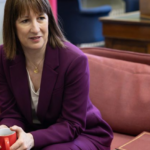The global job market is experiencing its longest downturn in over 20 years, according to Dirk Hahn, CEO of Hays, Britain’s largest listed recruitment firm. Hahn attributes the slump to ongoing macroeconomic uncertainty, which is deterring both employers and job seekers from making moves.
Hays, which employs nearly 7,000 consultants worldwide, reported weaker demand for temporary workers in early 2025, while demand for permanent roles—particularly in Europe—remains sluggish following a pre-Christmas dip. Countries such as France, the UK, Ireland, and Germany, Hays’s largest market, are feeling the pressure most acutely.
In the six months leading up to December, Hays reported a 15% drop in group net fees, falling to £496 million from £583.3 million the previous year. Pre-tax profits fell sharply by 67% to £9.1 million, compared to £27.6 million during the same period the prior year. Hays’s share price, already down 25% over the past year, dipped a further 1.8% on Thursday, closing at 71¾p and placing the company’s market value just below £1.2 billion. Despite declining profits, the company will maintain its interim dividend at 0.95p per share.
While the broader UK labor market has shown resilience with limited mass layoffs, businesses remain cautious about expanding their workforce. “Most companies have enough work to retain their current staff, but they’re not looking to increase headcount,” said James Hilton, Hays’s chief financial officer. “Many employees who received pay increases in recent years are not seeking new roles, creating a stalemate. However, over time, people will seek promotions or fresh challenges.”
Recruiters had anticipated a market recovery earlier this year, but Hahn now warns that the rebound may not materialize until 2026. In the meantime, Hays is focusing on its technology recruitment division—its most profitable segment—as it navigates the prolonged global hiring slowdown.









